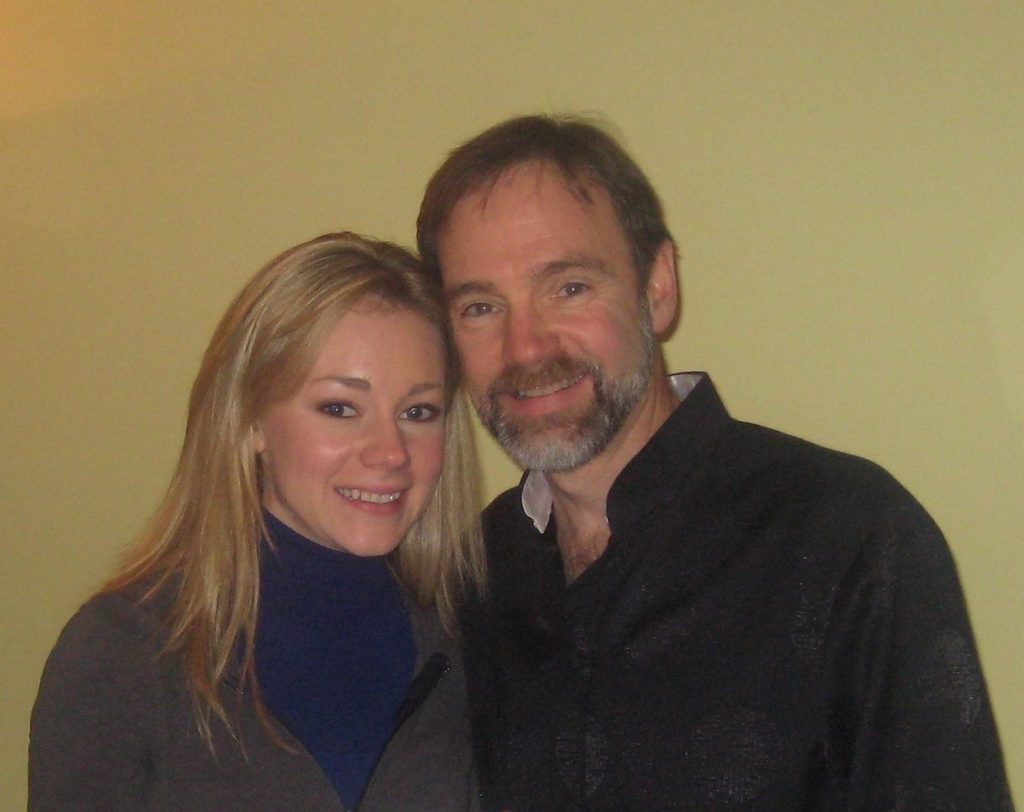Simple acts ease great pain, by Joel D. Feldman
Posted on Mon, Apr. 5, 2010, The Philadelphia Inquirer – Opinion
Simple acts ease great pain
By Joel D. Feldman
My lovely 21-year-old daughter, Casey, died about eight months ago on a beautiful summer day in Ocean City, N.J. She was struck by a car in a crosswalk while on her way to a boardwalk restaurant where she worked. How she died and, more important, lived her short life was reported in various newspapers.
Casey’s death is the most difficult thing I have faced, and going on without her is the most difficult thing I will face.
But in the immediate aftermath, I would not have expected to be doing as well as I am now. My progress has been possible because of supportive family, friends, acquaintances, and even strangers.
But I have found that many people, however well-intentioned, simply don’t know what to say or do to comfort the grieving. Awkwardness, anxiety, and ignorance surround death and mourning. So although grief is different for everyone, I offer my thoughts on what has and hasn’t helped me.
“How are you doing?” So many people asked me this question and then quickly tried to retract it, saying something like, “How stupid of me to ask! I know you must be suffering terribly.”
Even before Casey’s death, I was ambivalent about this expression, which often doesn’t indicate real interest in another’s condition. It’s better to ask someone who is grieving, “How are you doing today?” That communicates a genuine desire to know how someone is doing at the moment. A person can answer as fully or briefly as he wants, comforted by the knowledge that someone is willing to listen.
“What can I say?” You can’t really lessen my grief, certainly not with a phrase. You can comfort, but not cure. Just be present. “I was thinking of you and your family” is the kind of sentiment that helps.
“I know how you feel.” Please don’t ever say this. Many of us have lost loved ones, and some have even lost a child, but your loss doesn’t tell you how I feel about mine. (Presumably you are not as clueless as the person who told me she knew how I felt because she had recently lost her 18-year-old cat.)
Listen; don’t feel compelled to talk. Casey was an award-winning reporter and editor at her college newspaper, and one of her colleagues told me Casey had taught her that everyone has a story – that one just has to listen. That is perfect advice for anyone trying to comfort someone in mourning. All I want is to be listened to – to feel you are trying to learn what it’s like to stand in my shoes and are there when I need to talk.
“I didn’t want to remind you.” Many people said they were afraid to talk to me about Casey for fear of reminding me of her. But I think of Casey almost all the time, regardless of what others say to me.
I am afraid people will forget Casey. I’ll always appreciate it when people speak of and remember her.
Don’t judge my grieving. I struggled, and still do, with whether I am grieving enough for Casey. I know my grief is not a measure of my love, but when I would laugh or find pleasure in something, I would often chide myself for being happy too soon.
As I returned to normal activities, people would say things like, “I don’t know how you are going about your life as you are. I would never get out of bed.” This was probably intended as a compliment, but it made me question whether I was grieving enough. No one can know what I’m going through, so no one should try to characterize or judge my progress.
“I didn’t want to intrude on your grief.” I often heard this from friends trying to explain why they didn’t reach out to me sooner. But whether they did nothing because they didn’t want to intrude, didn’t know how to offer comfort, or just didn’t care, they still did nothing. I had no way of knowing the difference.
There was not a single person who reached out to me whom I saw as intruding. Surviving a tragic loss is a struggle. I feel different as a result of my loss; don’t compound that by making me feel isolated. Do something, lest your inaction be construed as insensitivity.
When is it too late to send a card? The answer for me is never. The bulk of the support I received came in the first month after Casey died. As time went on, there were fewer and fewer cards, phone calls, and deliveries.
Some studies show grief symptoms may actually worsen several months after a loved one’s death as a result of the gradual lessening of support over time. Put a reminder in your calendar to make a call, send an e-mail, or plan a lunch. It will be most appreciated.
My expectations – that Casey would graduate from college, find a satisfying career, marry, have children, live a full life, and one day mourn my death – have been shattered. In struggling to put together the pieces, I have learned that a tragic death can paralyze kind and caring people. And I have been helped by those who, whether they were comfortable doing so or not, tried to offer support.
Joel D. Feldman is a lawyer in Philadelphia. He can be reached at [email protected]. For more information about Casey Feldman and what her family is doing in her memory, see www.caseyfeldman.com.
[Note: Read and follow Joel’s blog, “Recovering From A Tragic Loss” – http://tragicloss.blogspot.com/. Also, the photo of Joel and Casey above, was added for this copy of the article on the Foundation site and did not appear in the Philadelphia Inquirer.]





[…] This post was mentioned on Twitter by Jeffrey Marshall. Jeffrey Marshall said: Comforting those who are grieving. What to say & how to listen. https://www.caseyfeldmanfoundation.org/blog/?p=477 #fb […]
Hi Joel,
This is so helpful and encouraging for people who I think truly just don’t know what to do. i think you’ve summed it up beautifully and will help alot of people in the future.
As for now, when can we all get together… we have to catch up on all you have done, which is quite remarkable and such an inspiration. I just read the article on how you and Dianne were so instrumental in changing the pedestrain law in N.J. WOW !!!! That is such an accomplishment!!! Casey is beaming – smiling upon you and is soo proud!!
Thinking of you, Dianne, and Brett all the time but especially today, Casey’s birthday. I’m glad you will be celebrating with all of Casey’s friends, as it should be. XXOO
Thank you for this informative and inspiring piece, Joel. I am spilling tears all over my keyboard and I am not a sentimental sod.
I sometimes get wrapped up in the financial trainwreck of putting two daughters through college and forget how wonderful they are when they come home to visit. The next time I see them, I will give them a special hug for Casey.
As an elder law attorney, I get calls telling me about the death of a client regularly. Usually there is a sense of relief because the person was so sick for so long. That is extremely different from the contacts I have with parents whose children have died suddenly and untimely, but the loss of a loved one is terrible without regard to timing or circumstances. I will try to take your suggestions to heart.
I received a card a few weeks ago on the 7th anniversary of my long term companions death. It was from a co-worker of my deceased friend who I had spoken to but never met. She talked about my girlfriend’s kindness and how she is still missed. That card met so much to me.
I hope you will know the peace that only time will bring.
Comments are closed.